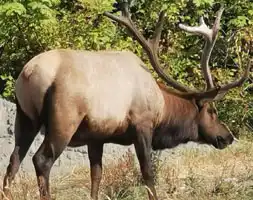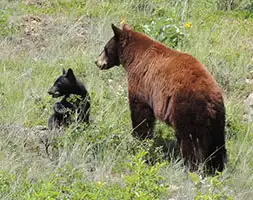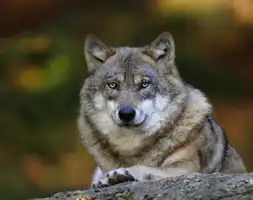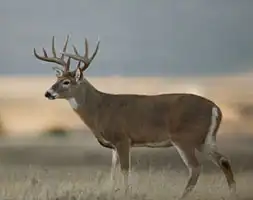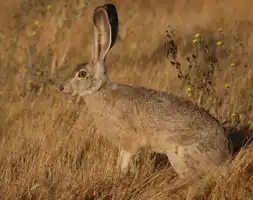How much does it cost to hunt black bears in Canada?
The cost of black bear hunting on Vancouver Island starts at approximately $3,000. Prices vary depending on factors like the duration of the hunt, licensing, tags, guide services, and additional taxes or fees.
How many bears are on Vancouver Island?
Vancouver Island is home to over 7,000 black bears, making it one of the densest populations of black bears in North America. While grizzly bears have been sighted occasionally on the northern part of the island, they are rare, and there is no open season for grizzly bears in British Columbia
How many subspecies of black bears are on Vancouver Island?
There are six subspecies of black bears in British Columbia, and the Vancouver Island black bear (Ursus americanus vancouveri) is a distinct subspecies known for its large size and dark coat.
Is bear hunting legal in Canada?
Yes, hunting black bears is legal in Canada, provided hunters adhere to provincial and territorial regulations. However, it is prohibited in protected areas such as national parks, ecological reserves, and some provincial parks.
Where is bear hunting legal on Vancouver Island?
Bear hunting is legal in designated management units (MUs) on Vancouver Island, excluding national parks, ecological reserves, and specific provincial parks. Always refer to the latest hunting regulations for detailed boundaries and restrictions
What time of day is best to hunt a black bear?
Black bears are most active during early mornings and late evenings when they are foraging for food. In the fall, they can be active throughout the day as they prepare for hibernation.
What is the best way to hunt a bear on Vancouver Island?
Spot-and-stalk hunting is the preferred method on Vancouver Island. It allows hunters to actively track their prey while enjoying the island's diverse terrain and scenic beauty.
Is bear hunting dangerous on Vancouver Island?
Bear hunting can be a safe and exciting adventure if proper precautions are taken. Always follow safety guidelines, carry appropriate gear, and be aware of your surroundings to minimize risks.
Can you smoke while bear hunting?
It is not recommended to smoke while hunting, as the scent can scare off bears and reduce your chances of success.
What methods are legal for bear hunting on Vancouver Island?
Legal methods for bear hunting include:
• Firearms (e.g., centerfire rifles and shotguns)
• Archery equipment (e.g., crossbows and compound bows)
• Decoys
Traps and baiting are not permitted.
What should you wear for bear hunting on Vancouver Island?
Essential clothing for bear hunting includes:
• Hiking boots
• Waterproof pants and jacket
• Socks (multiple pairs)
• Hunting pants
• Short-sleeve and long-sleeve shirts
• Gloves, hat, and layered clothing to adjust for temperature changes
What gear do you need for bear hunting?
Essential hunting gear includes:
• Hunting clothes and boots
• Camping equipment
• Rifle or bow with appropriate ammunition or arrows
• Binoculars
• Duffle bags for gear and supplies
• High-calorie snacks
Is it legal to bait bears on Vancouver Island?
No, baiting is illegal for hunting black bears in British Columbia. Hunters must rely on ethical hunting methods such as spot-and-stalk.
What time of day are black bears most active?
Black bears are typically most active during the early morning and late evening when they search for food. These times are ideal for spotting and hunting.
What’s the black bear hunting season on Vancouver Island?
The open seasons for black bear hunting on Vancouver Island are:
• General Open Season (Firearms and Archery): April 1 to June 15 and September 10 to December 10.
• Archery-Only Season: August 25 to September 9.
Always verify the latest regulations in the British Columbia Hunting and Trapping Regulations Synopsis before planning your hunt, as these dates may change.
How to hunt black bears without dogs?
Hunting black bears without dogs can be highly effective by locating their feeding areas. Black bears are omnivores, and their diet includes a variety of foods such as berries, nuts, grasses, insects, and fish. Focus on clear cuts, berry patches, or streams where bears are likely foraging. Spot-and-stalk is a common and ethical method for hunting without the assistance of dogs.
What does a black bear eat?
Black bears have a varied diet consisting primarily of plant-based foods. Common items include:
• Plants and Crops: Berries, nuts, grasses, and roots.
• Animal Matter: Fish, insects, and small mammals.
• Other Sources: Farm crops, carrion, and sometimes garbage when human-bear conflicts arise.
A black bear’s diet depends on seasonal availability, with berries being a key food source in late summer and early fall.
